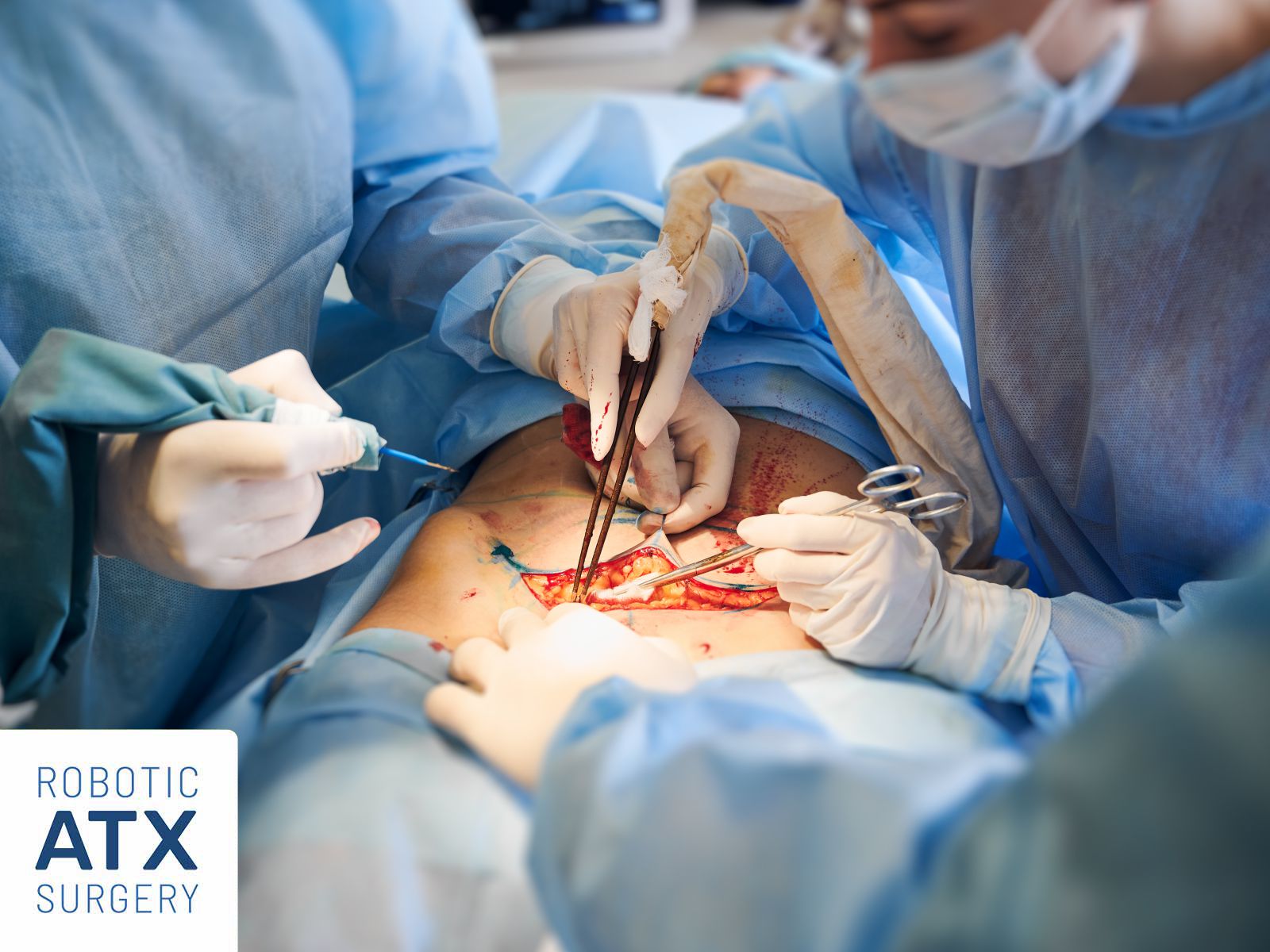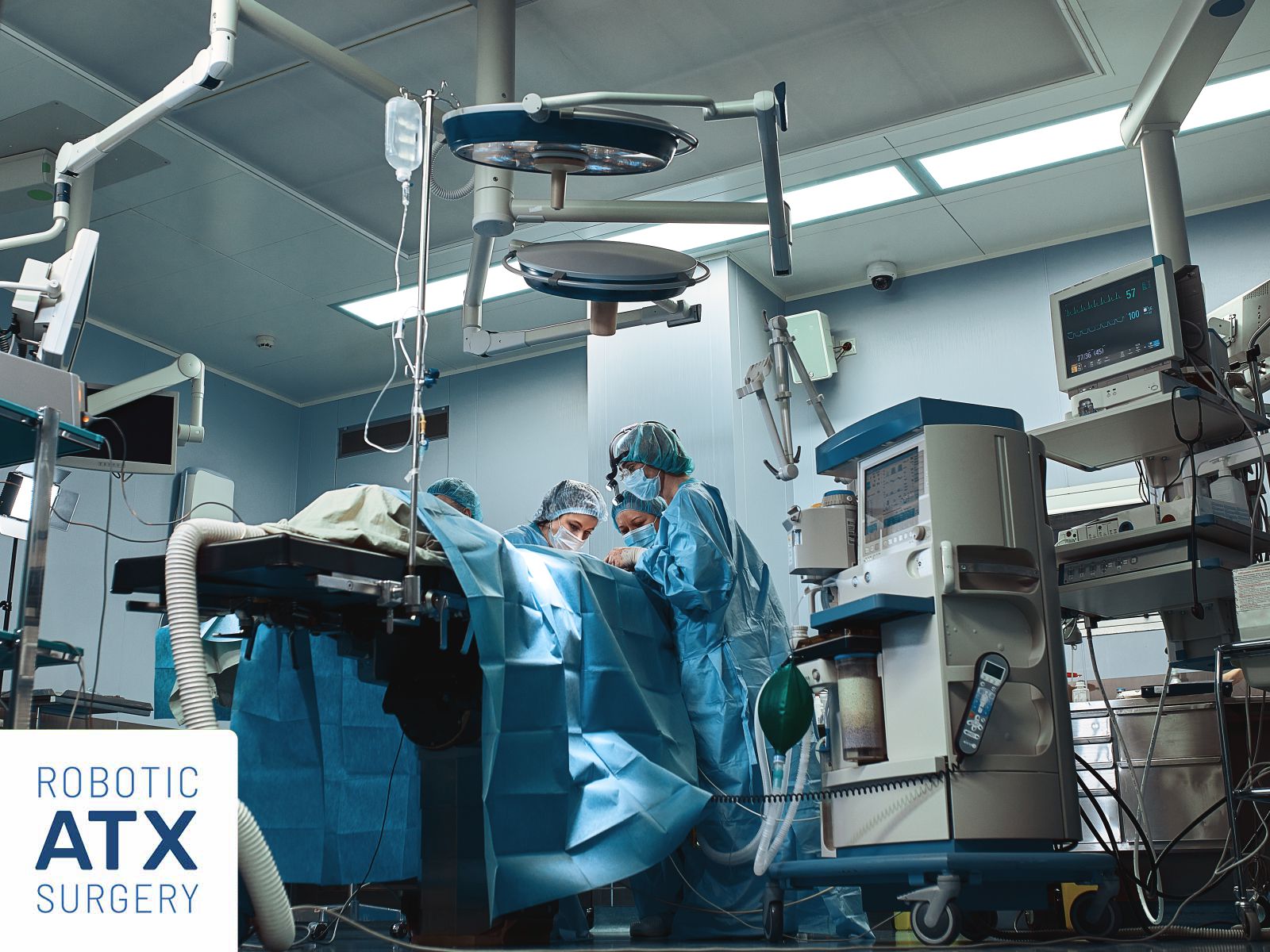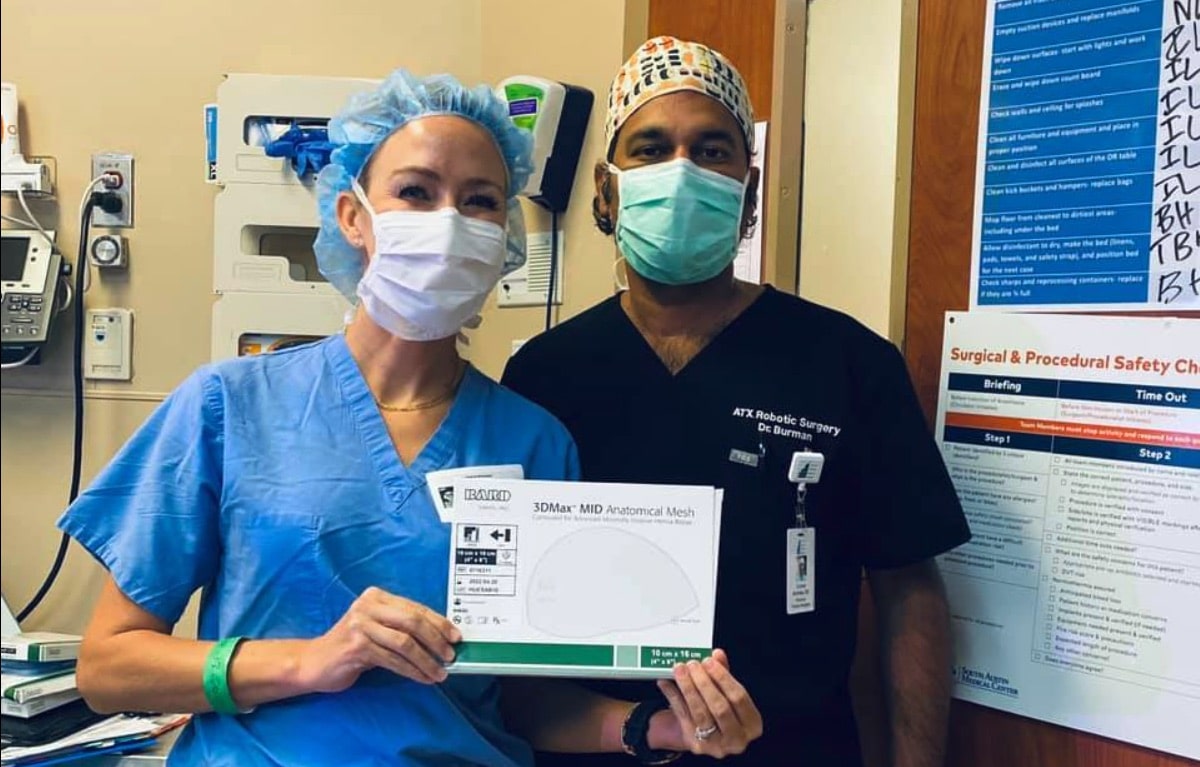
Understanding Inguinal Hernias: Causes, Symptoms and Treatment
Inguinal hernias are a common condition that many overlook. They start with discomfort in your lower abdomen or a lump in your groin that may be painful. Though these hernias are generally not life-threatening, they need medical intervention. Understanding the causes, symptoms, and treatments for it is necessary for those affected or at risk of developing this condition.
In this guide, our expert surgeons at ATX Robotic Surgery get to the bottom of the causes, diagnosis, and treatment of inguinal hernias. We have also shared some prevention tips to lower the likelihood of developing this condition.
Types of Inguinal Hernias
Before going into the causes and treatments, it’s important to know that there are two main types of inguinal hernias:
• Indirect Inguinal Hernia
An indirect inguinal hernia is often congenital, meaning you’re born with it. It occurs when abdominal contents push through the inguinal canal, i.e., a passage in the lower abdominal wall. This type is more common in men and can affect people of all age brackets, from infants to adults.
• Direct Inguinal Hernia
A direct inguinal hernia typically develops later in life due to a weakening of the muscles of the lower abdomen. Unlike an indirect hernia, a direct one protrudes directly through a weakened area of the abdominal wall and is more likely to occur in older adults, particularly men.
Both types of inguinal hernias can cause discomfort and, if left untreated, can cause strangulation (loss of blood supply to the herniated tissue) as well.
Causes of Inguinal Hernia Pain
Inguinal hernia pain has various causes and triggers. The most common ones are:
Congenital Factors
Some individuals are born with a weakness in the abdominal wall, particularly in the inguinal canal, which makes them more prone to developing inguinal hernias. This hernia commonly appears in infants and children, although it may not become noticeable until later in life.
Acquired Factors
The condition can often result from acquired factors as well, which include:
- Heavy lifting: Overexerting yourself while lifting heavy objects can strain the abdominal muscles, causing a hernia.
- Chronic coughing: Conditions like chronic bronchitis or persistent coughing can increase abdominal pressure, leading to the development of a hernia.
- Straining during bowel movements: Constipation and straining to pass stool can contribute to hernia development over time.
Risk Factors
Several factors raise the chances of getting this type of hernia, such as:
- Gender: Men are far more likely than women to develop inguinal hernias.
- Age: As you get older, the abdominal muscles weaken, increasing the risk of hernias.
- Family history: If a relative has had an inguinal hernia, your chances may be higher, too.
- Obesity: Extra weight can add pressure to your abdomen, increasing the risk of a hernia.
- Pregnancy: The additional weight and strain on the abdominal muscles during pregnancy can lead to hernias.
Our specialists can help you assess the type and causes of your inguinal hernia pain.
Recognizing the Symptoms
The symptoms of inguinal hernias can vary depending on the severity and type, but there are some signs to watch for.
Common Symptoms
- Bulge in the groin area: The most obvious sign of this type of hernia is a visible bulge in the lower abdomen or groin, which may become more noticeable when you’re standing or bending over.
- Pain or discomfort: Many people with hernias experience pain or discomfort, especially when bending over, lifting heavy objects, or engaging in physical activities.
Other Symptoms
Along with the bulge and discomfort, you might also feel:
- Heaviness or pressure in the groin area.
- Burning or aching at the bulge site.
Some individuals also report discomfort or swelling around the testicles if the protruding intestine descends into the scrotum.
When to Seek Medical Attention
If you have severe pain, nausea, vomiting, or the hernia becomes tender to the touch, it could be a sign of strangulation. Timely evaluation and treatment can help prevent complications and relieve your discomfort. You must immediately consult a hernia doctor.
Inguinal Hernia Diagnosis & Treatment at ATX Robotic Surgery
At ATX Robotic Surgery, we specialize in inguinal hernia treatment. Our skilled surgeons use the latest technology for effective, minimally invasive inguinal hernia repair. We offer robotic hernia surgery, which has many benefits compared to traditional open surgery.
In robotic hernia surgery, small tools and a camera guide the surgeon in repairing the hernia. This method allows for more precision, leading to smaller cuts, less pain, and quicker recovery. So, you will experience minimal scarring and a faster return to your regular activities.
If you’re Googling for a ‘hernia doctor near me’ in Austin, consider consulting our inguinal hernia specialist to discuss your treatment options.
Preventing Inguinal Hernias
While not all inguinal hernias can be prevented, certain lifestyle changes can reduce your risk. Here are a few tips to help prevent hernias:
1. Proper Lifting Techniques
Avoid lifting heavy objects when you can. If you need to lift something heavy, you should bend your knees and keep your back straight to reduce strain on your abdominal muscles.
2. Maintain a Healthy Weight
Being overweight is a major risk factor for inguinal hernias, so you must keep a healthy weight. Follow a balanced diet and regularly exercise to lower risks related to this condition.
3. Avoid Constipation
Straining during bowel movements increases the risk of hernias. To prevent constipation, ensure you consume a high-fiber diet, stay hydrated, and get regular exercise.
4. Quit Smoking
Smoking can cause chronic coughing, which contributes to the development of inguinal hernias. Quitting smoking can reduce your risk of hernias.
5. Strengthen Your Abdominal Wall
Doing exercises to strengthen your abdominal muscles can help prevent hernias. Activities like yoga, Pilates, and core workouts strengthen your abs and give extra support to your abdominal wall.
For expert advice on inguinal hernia repair, schedule a consultation with us today and start living a life free from pain and discomfort.



